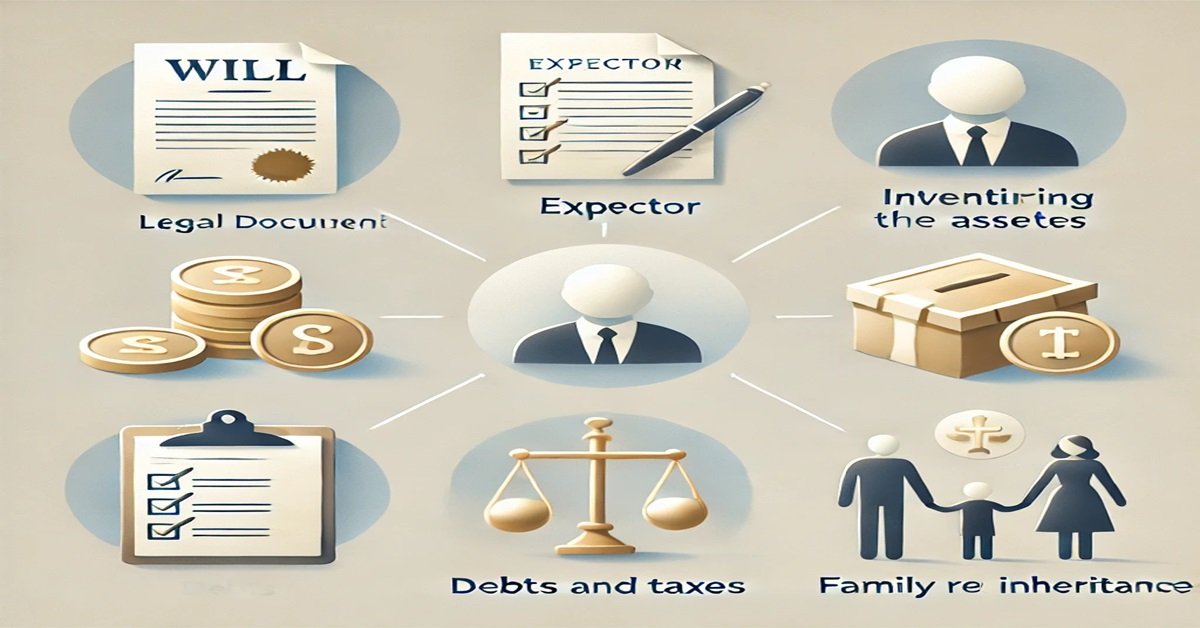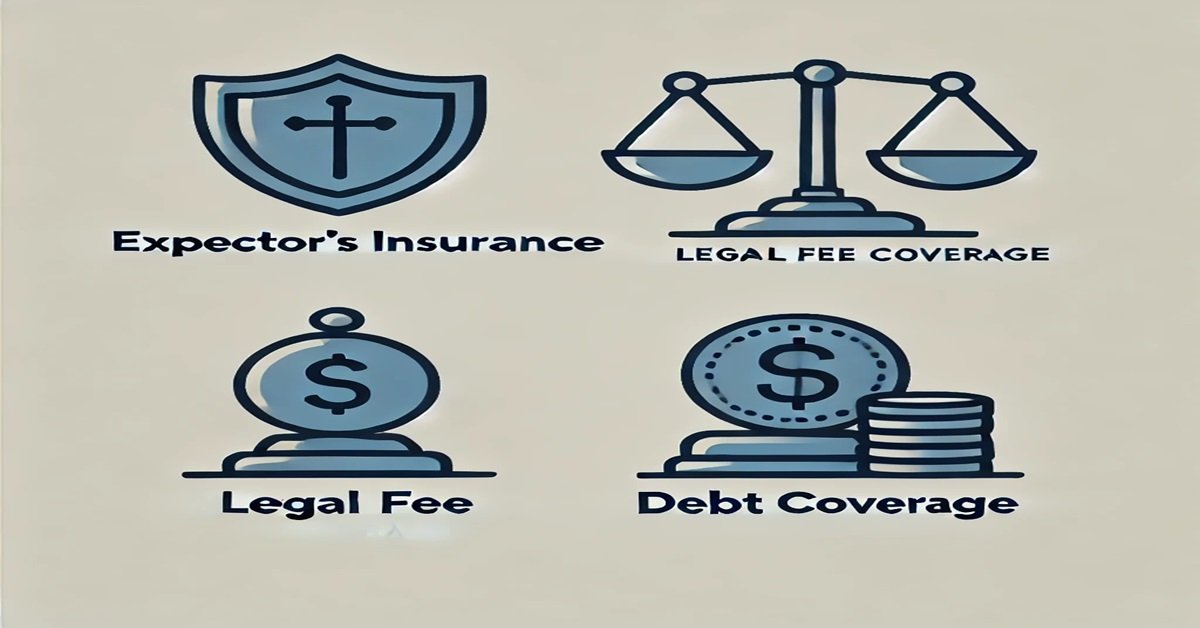- 01869 226760
- gail@bicesterwills.co.uk
- Mon - Fri: 8AM - 4PM
When someone dies, their things don’t automatically go to their family. Instead, everything has to go through a legal process called probate. This can take a long time and cost a lot of money, which is where probate insurance comes in. But what exactly is probate insurance, and why might you or your family need it?
This guide will explain probate insurance in a simple way. We won’t use complicated legal jargon. By the end, you’ll know what probate insurance is, how it works, and why it matters for you or your loved ones.
Table of Contents

- admin
- Probate
1. What is Probate Insurance?
Probate insurance is a special type of insurance. It helps cover costs and protect an estate during probate. An estate is everything someone owns. When a person dies, their estate must go through probate. This is a legal process. The court reviews the will, settles debts, and distributes assets as the deceased wished.
The problem is that probate can take a long time, sometimes even years, and cost a lot of money in legal fees and taxes. This is where probate insurance steps in. It covers those costs. So, the family or beneficiaries don’t have to pay large sums out of pocket. It also protects the estate from unexpected claims or disputes, making the whole process smoother.
2. Why is Probate Insurance Needed?
The main reason people need probate insurance is that the probate process can be long, expensive, and stressful. A will doesn’t let a family access a deceased person’s money or property right away. All estates must go through probate. It can bring unexpected costs, like legal fees, taxes, and disputes over inheritances.
Probate insurance helps in several ways:
- It saves money by covering legal fees and other costs.
- It protects the family from surprise claims against the estate, like creditors.
- It speeds up the process by providing funds to pay off debts, which can help distribute the estate more rapidly.
Probate insurance can be a lifesaver for families. They rely on their inheritance for funeral costs and daily expenses.
3. How Does Probate Insurance Work?
Probate insurance works a lot like other types of insurance. You or the estate’s executor pays for a policy. The executor manages the estate after a death. This policy is a contract with the insurance company. It will pay if certain costs arise during probate.
If someone contests the will, there will be legal fees. Probate insurance will help cover those costs. Probate insurance can pay any debts before the beneficiaries get their inheritance.
The goal is to ensure the family or executor doesn’t use their own money for unexpected expenses. Also, we want to avoid draining the estate by legal costs before distributing it to the heirs..
4. What is the Probate Process?

Probate is the legal process after someone’s death. It ensures that they distribute their estate in the correct manner. You can break it down into a few key steps:
- Filing the Will: If there’s a will, the executor needs to file it with the probate court. If there’s no will, the court will follow the local rules for distributing the deceased’s estate.
- Appointing an Executor: If the deceased didn’t name an executor, the court will appoint one to manage the estate.
- Inventorying Assets: The executor must list everything the deceased owned. This includes property, money, and personal items.
- Paying Debts and Taxes: Before anyone can receive their inheritance, they must pay any outstanding debts or taxes.
- Distributing the Estate: After paying debts, the assets go to the will’s beneficiaries. If no will exists, the law decides who inherits.
This process can be simple for small estates. But, it can become very complicated for larger, more complex ones. This is especially true if family members or creditors dispute it.
5. Who Should Get Probate Insurance?
While probate insurance isn’t necessary for every estate, it can be a good idea in certain situations. Here are a few examples of who might benefit from probate insurance:
- Probate insurance can help with large or complex estates. It protects against legal claims and covers high legal fees. It is useful for those who own multiple properties, a business, or have significant wealth.
- If family members might dispute the will, probate insurance can help. It covers the costs of resolving those disputes.
- Debts of the deceased: If they had large debts, probate insurance can help. It will pay off those debts without draining the estate.
- Executors can face personal responsibility if something goes wrong during probate. Probate insurance helps protect them from lawsuits or financial liability.
Even simple estates can face issues in probate. So, it’s wise to consider probate insurance.
6. Types of Probate Insurance

There are different types of probate insurance, depending on what you need to protect. Some of the main types include:
- Executor’s Insurance: It protects the executor from liability for probate errors.
- Legal Fee Coverage: This policy helps cover legal fees if someone challenges the will or disputes the estate.
- Debt Coverage: If the deceased had debts, this insurance pays them. It does so without using the estate’s assets before distributing it.
Depending on the estate’s size and complexity, you may want probate insurance. It will protect everything. You may need one or more types.
7. The Benefits of Probate Insurance
There are many benefits to having probate insurance, both for the estate and the beneficiaries. Some of the main benefits include:
- Peace of Mind: Knowing that the estate is protected can ease your worries. It can also cover unexpected costs. This can help everyone during a tough time.
- Financial Protection: Probate insurance can protect the estate from legal fees, debts, and claims.
- Faster Process: Probate insurance can speed up probate. It covers costs upfront, so beneficiaries get their inheritance faster.
- Executor Protection: If you’re an executor, probate insurance can protect you. It covers mistakes or disputes during probate.
Probate insurance can make the probate process smoother and less stressful for everyone.
8. Common Probate Costs
There are several common costs associated with probate that can accumulate rapidly. These include:
- Legal Fees: If disputes arise over the will, they can lead to high legal fees if a lawyer needs to help with the process.
- Court Fees: Courts often charge fees for processing wills and overseeing probate.
- Depending on the size of the estate, the heirs may need to pay inheritance taxes or estate taxes.
- Appraisal Fees: If property or valuable items need appraising, there can be fees for that.
- Executor’s Fees: In some cases, the estate pays executors a fee for their work.
These costs can add up. Without probate insurance, they may reduce the money for the beneficiaries.
9. What Happens if There’s No Probate Insurance?
If there’s no probate insurance, the estate and its beneficiaries may face several challenges:
- High Legal Fees: Disputes may lead to high legal fees. This could reduce the money left for the beneficiaries.
- Delayed Distribution: Without probate insurance, probate could take much longer. This is true particularly when debts or legal issues remain unresolved for an extended period.
- Risk to Executors: Executors may be liable for problems in probate. Without probate insurance, they could face lawsuits and financial loss.
Probate insurance guards against these risks. It helps ensure a smooth, quick probate process.
10. How to Choose the Right Probate Insurance

Choosing the right probate insurance depends on the specific needs of the estate. Here are some tips to help you make the right choice:
- Consider the Estate’s Size: Larger estates may need more insurance. It protects against legal claims and fees.
- Consider Family Dynamics: If disputes may arise, get a policy that covers legal fees.
- Check for Debts: If the deceased had large debts, consider a policy to cover them. It will protect the estate’s assets.
- Consult a Professional: It’s wise to speak with an insurance expert or lawyer. They can help you pick the right policy for your needs.
Taking the time to choose the right probate insurance policy can save you a lot of stress and money in the long run.
11. How Probate Insurance Protects Executors
One of the most important ways probate insurance helps is by protecting executors. Executors have a big responsibility. They manage the estate, pay debts, and distribute assets per the will.
If something goes wrong during probate, the court could assign personal responsibility to the executor. For example, a creditor might claim the estate owes money. Probate insurance protects executors from lawsuits and losses. It gives them peace of mind while they handle the estate.
12. Probate Insurance and Estate Planning
It’s important to understand the difference between probate insurance and estate planning. Estate planning is making a plan for what happens to one’s money, property, and belongings after they die. This usually involves writing a will, setting up trusts, or creating other legal documents.
Probate insurance, on the other hand, helps after someone dies. It covers the costs of the probate process. It guarantees the protection of the estate during the legal resolution of all matters.
For the best protection, it’s often a good idea to have both a solid estate plan and probate insurance.
13. Commonly Asked Questions
Q1: Is probate insurance required by law?
No, probate insurance isn’t required by law. But, it can protect an estate and its heirs from surprise costs and legal disputes.
Q2: How much does probate insurance cost?
The cost of probate insurance depends on the size and complexity of the estate and the type of coverage you choose. It’s a good idea to speak with an insurance provider to get a quote based on your specific needs.
Q3: Who needs probate insurance?
Executors and others managing an estate during probate may enjoy probate insurance. It’s particularly useful for estates that are large, complex, or at risk of disputes.
Q4: How long does probate take?
Probate can take months or even years, especially if there are disputes or debts to settle.
Q5: Can someone purchase probate insurance after another person dies?
Yes, probate insurance is usually bought after someone dies, once the estate is in probate.
Q6: Does probate insurance cover inheritance taxes?
Some probate insurance policies may cover inheritance taxes. Check your policy for details.
14. Steps to Get Probate Insurance
If you’ve decided that probate insurance is a good idea for you or your family, here’s how to get started:
- Assess the Estate: Check the estate’s size, debts, and risk of disputes among beneficiaries.
- Consult with an Expert: Speak with an insurance agent or legal advisor who specialises in probate insurance.
- Choose the Right Coverage: Based on your needs, choose the type of probate insurance that makes the most sense for your situation.
- Purchase the Policy: After choosing a policy, fill out the paperwork and pay for the coverage.
15. Final Thoughts on Probate Insurance
Probate insurance protects an estate and its beneficiaries. It covers unexpected costs and legal challenges during probate. It’s not required. But, it can bring peace of mind, security, and a smoother experience for all.
By knowing how probate insurance works, you can protect your family. It can be a difficult, stressful time.
Latest Post
-
How Much Does a Solicitor Charge for Power of Attorney?
October 18, 2024 LPA -
Valid Reasons for Child Name Change UK
September 9, 2024 Blog -
Automatic Divorce After 7 Years UK – Myth or Reality?
September 7, 2024 Blog -
What You Should Never Put in Your Will UK
August 19, 2024 Wills






